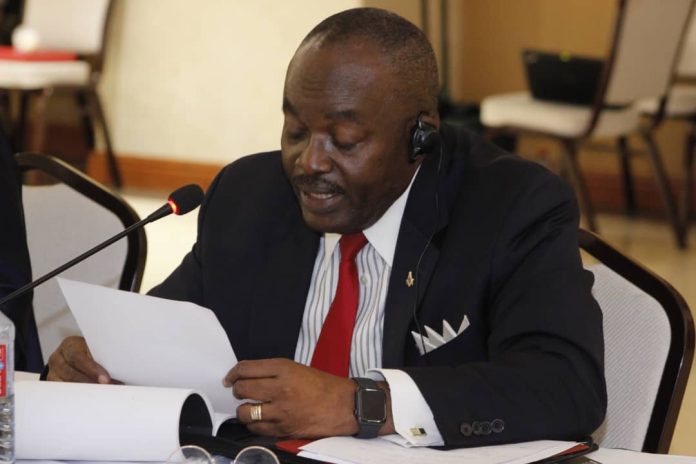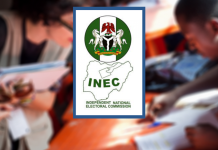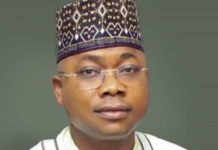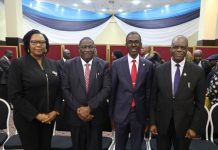Former Justice Minister of the Republic of Liberia, Cllr. Benedict Sannoh has emphasized the crucial role of upholding the citizens’ mandate by the Supreme Courts of the Economic Community of West African States (ECOWAS) to prevent post-election crises.
During the Delocalized meeting of the ECOWAS Parliament’s Joint Committees on Political Affairs, Peace, Security, and the African Peer Review Mechanism, Judicial Affairs and Human Rights, Social Affairs, Gender, and Women Empowerment in Monrovia, Liberia, Sannoh delivered a paper titled “Role of Judiciary in the Prevention and Management of Electoral Crisis.”

Cllr. Benedict Sannoh presenting a paper at the Delocalized meeting of the ECOWAS Parliament’s Joint Committees on Political Affairs, Peace, Security, and the African Peer Review Mechanism, Judicial Affairs and Human Rights, Social Affairs, Gender, and Women Empowerment in Monrovia, Liberia.
Sannoh highlighted that the manner in which elections are adjudicated by the Judiciary sets the foundation for either peace or crises. He stressed the importance of an independent judiciary and urged political parties to actively engage with and support the judiciary’s work.
“The judiciary, particularly the Supreme Court, must ensure the upholding of the constitutional mandate. Their role in adjudicating cases should enhance and protect the will of the people as expressed through their votes in elections, in line with the constitution. The Supreme Courts should prioritize adherence to fundamental rights enshrined in the constitution, ensuring due process is followed before any deprivation of liberty or rights,” Sannoh stated.
He also encouraged political parties to be proactive in monitoring actions taken by the elections commission, legislature, or executive branch and to seek judicial resolution when necessary, including through referendums or addressing voter roll issues.
Responding to questions from Members of Parliament, Sannoh emphasized the need for proper implementation of Member States’ constitutions, which should reflect the will and expectations of the citizens, addressing all their concerns.
During discussions, some ECOWAS Members of Parliament expressed concerns about executive influence over the judiciary. They recommended exploring changes in the constitution, such as allowing citizens to vote for judges instead of the executive appointing them. This, they believe, would enhance the independence and impartiality of the judiciary, ensuring justice is not compromised.
Hon. Ladi Ayamba, Member of Parliament from Ghana said that the decisions of some courts in West Africa have at several times been influenced by the executive, which makes justice denied in most cases.

“When Judges are appointed by the executive, they can get them to say anything in their favor. “I think this is something that we must look at changing in our various country’s constitutions. “For me, I would recommend that judges should be voted for by the people,” Ayamba said.
In conclusion, Sannoh’s paper underscored the vital role of the judiciary in ensuring fair and transparent elections, safeguarding the citizens’ mandate, and preventing potential post-election crises in West Africa.






